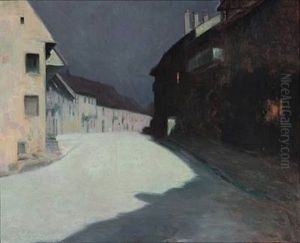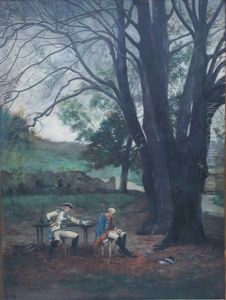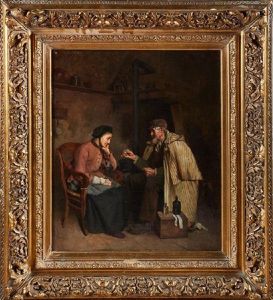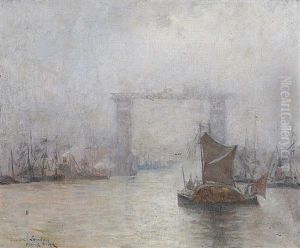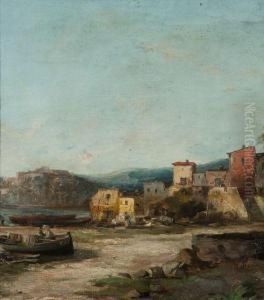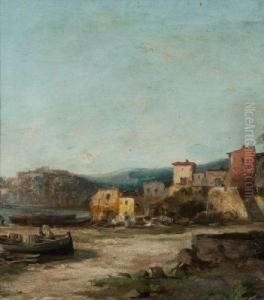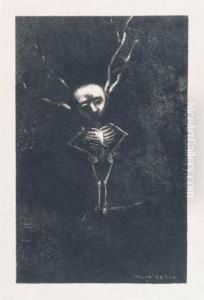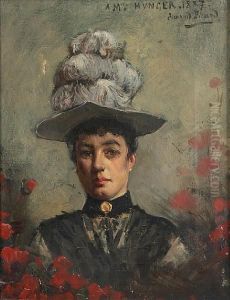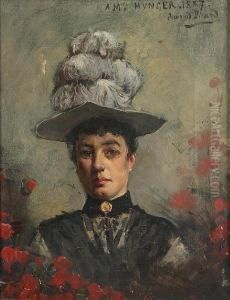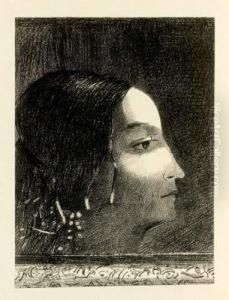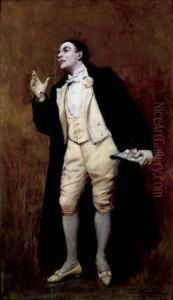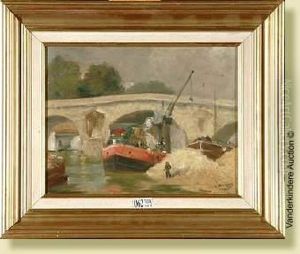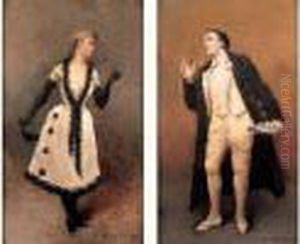Edmond Picard Paintings
Edmond Picard was a multifaceted Belgian personality, whose contributions spanned across the fields of law, literature, and the arts, making him a notable figure in the cultural landscape of Belgium in the late 19th and early 20th centuries. Born on December 15, 1836, in Brussels, Picard embarked on a career in law, eventually becoming a highly respected lawyer and jurist. His legal writings, particularly in the realm of social and economic legislation, were influential in shaping Belgian law and policy.
Picard's interests, however, extended far beyond the courtroom. He was deeply engaged in the literary and artistic movements of his time, aligning himself with the Symbolist movement, which sought to express the mystical and emotional aspects of human experience through art. As a writer, he contributed significantly to Belgian literature, penning essays, plays, and novels that often explored social and philosophical themes.
In addition to his literary endeavors, Edmond Picard was a passionate advocate for the arts. He played a crucial role in the establishment of La Libre Esthétique, an annual art exhibition in Brussels that aimed to promote avant-garde art movements. This exhibition was instrumental in introducing the Belgian public to the works of many international artists and in fostering an appreciation for contemporary artistic expressions.
Picard's influence extended into the realm of art criticism and theory. Through his writings and lectures, he championed the works of many Belgian artists, contributing to the development of a distinctly Belgian artistic identity at a time when the country was searching for its cultural voice. His efforts helped to elevate the status of Belgian art both nationally and internationally.
Despite his extensive contributions to law, literature, and art, Edmond Picard's name is not as widely recognized today as some of his contemporaries. Nonetheless, his work had a lasting impact on the cultural and intellectual life of Belgium, reflecting a deep commitment to social justice, artistic innovation, and the power of the written word. Edmond Picard passed away on February 19, 1924, leaving behind a legacy that continues to be studied and appreciated by those interested in the intersections of law, literature, and art.


